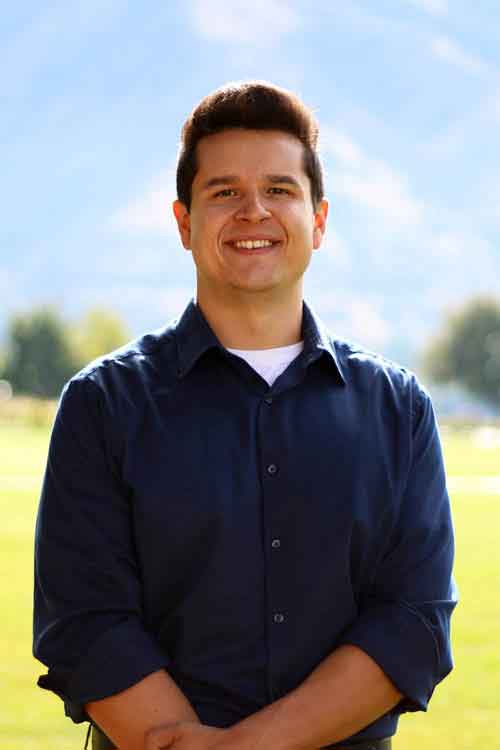Max Roberts ’15 B.A. Sociology
By Kim Lamb GregoryGrowing up with his parents in a midtown apartment in Ventura, Max Roberts saw sociological patterns that caused him to form questions.
“Such as why is there so much homelessness? Why do people struggle to pay bills?,” Roberts said. “Neither of my parents attended college, and although they worked hard, I saw them struggle to pay our rent and bills. Whereas across the road, people were in nice houses and driving Mercedes.”
So when the first-generation college student enrolled in CSUCI, he was drawn to the study of sociology, and all that’s happened since he graduated with a bachelor’s degree in 2015 indicates he made the right choice.
Roberts, who will soon be awarded a Ph.D. from Utah State University (USU), attracted national media attention for his research into the differences in longevity between Black and white Americans.

Roberts’ research showed the national life expectancy gap between Black and white Americans has been shrinking over time. However, in Washington D.C., the Black-white longevity gap among men was more than 400% greater than the national gap, with white men living more than 17 years longer than Black men.
Roberts’ groundbreaking research was featured in publications such as The Washington Post; New York Magazine; as well as Scientific Reports — the largest public access health journal in the West. The research also appeared in the world’s second largest open access public health journal, BMC Public Health.
“I was fortunate and excited when the article was picked up by The Washington Post,” Roberts said. “Policy makers generally don’t read research articles every day, so when you can bridge the gap between the academic research and policy, you can begin to bring about change.”
In March, the Utah State University College of Humanities and Social Sciences declared Roberts the recipient of the Doctoral Student Researcher of the Year Award.
CSUCI Associate Professor of Sociology Luis Sánchez, Ph.D. mentored Roberts and introduced him to undergraduate research.
“It was a pleasure to teach and train Max in research methods, but he always possessed the skills and attributes you cannot teach,” Sánchez said. “Max is resilient, gritty, and never backed down from a challenge. It’s no surprise he’s been able to put everything together and is making profound contributions to public health research.”
Roberts is continuing his research by looking into how disparities in education affect a person’s longevity. He hopes to finish his dissertation this summer and apply for a position as a health scientist at a national, state or local health institute.
USU Professor of Sociology and Associate Dean of Research Eric Reither, Ph.D., who has mentored Roberts, believes Roberts will excel at whatever career he chooses.
“He is a quick learner with a tireless work ethic, and he is one of the most affable people I have ever met,” Reither said. “Aside from that, he has become a proficient mountain biker and snowboarder since moving to Utah. Who would not want to hire a person like that?”
Return to the Table of Contents
© Spring 2021 / Volume 26 / Number 1 / Biannual
